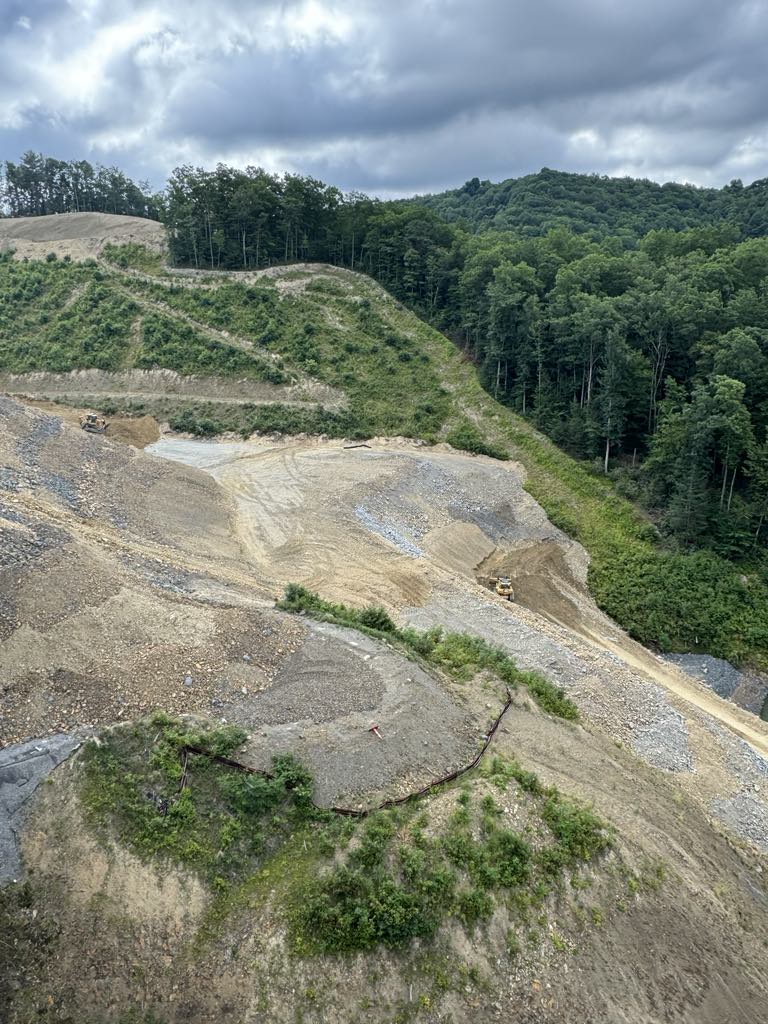(Junior, WV) Mallorie Shomo sits at her parents’ dining room table as she scrolls through photos of her children. Only moments earlier the house was abuzz with activity as everyone lined up to indulge in the feast cooling in the kitchen—a ham dinner cooked in honor of a friend visiting over Labor Day weekend. Now that everyone has had their fill, guests relocate outside to tinker with a dirt bike while Mallorie’s parents, Joe and Luann Shomo, retreat for a nap to recover from an afternoon spent cooking. It’s the first peaceful moment the house has seen all afternoon.
Weekends spent catching up with family and friends are Mallorie’s “new normal,” but it wasn’t always this way. Nearly nine years ago, Mallorie’s brother Nick passed away unexpectedly just a few days shy of his thirty-fourth birthday. This tragedy compounded with other personal upheavals was the beginning of Mallorie’s struggle with addiction.
After losing her job and even spending time in jail, Mallorie found her path to recovery with the support of her family. But as those who’ve lived it can tell you, that is just the beginning of rebuilding a life after it has been touched by addiction.
Mallorie is among the 100 million Americans with a criminal record. (SOURCE 1) Of those Americans, more than 60% find themselves unemployed one year after being released from incarceration, and those who do find employment can expect to earn 40% less annually than those who’ve not had a brush with the law. (SOURCE 2)
Thankfully, the skilled trades are one sector of the workforce where a criminal record is not typically a barrier to employment, and as luck would have it, Mallorie knew someone who was able to get her into an apprenticeship program as a direct hire. Today she is a proud member of the Laborers Local Union 984 out of Clarksburg, WV, and has been working as a laborer on a federal highway project for several years now.
Initially, the trades were outside Mallorie’s wheelhouse, but she was undeterred. “When I started, I knew nothing about this type of work. I had a total of eight weeks of training, and at first, I hated it. First, I put in a month of hands-on work locally, then I had to drive back and forth from Barbour County to Parkersburg every week for a month of additional training. In Parkersburg, they had a place where we could stay through the week, but paying for gas there and back was still rough since I hadn’t been working. You don’t get paid for that, so I had to go four weeks without a paycheck! I was asking myself ‘Why am I doing this?’ But now, I look back and see it was the right thing to do.”
Her next step was acquiring the equipment needed to do the job. “It’s hard because you’ve got to buy food. You’ve got to buy a lunchbox. You’ve got to buy all this stuff you have to have,” she explained. And she’s right—it’s not easy to invest money after spending a month on unpaid training and travel. That’s where programs like WV Women Work can help women successfully launch their new careers. Mallorie received help paying union dues, purchasing work boots, and more. “It gets you the help you need—a jumpstart. That kind of help is how I was able to get started with it,” Mallorie explained.
After completing her training in Parkersburg, she was assigned to Corridor H construction where she invested years of work. “I’ve done environmental, pipe crew, and now we are working on an SE wall. An SE wall comes off a bridge, and it’s made of concrete slabs that we fill up with stones to hold it in place. It’s interesting to see how it all comes together.” The best part of this job, she says, is looking at the highway and saying “I built this. I worked on this.”
Mallorie was also happy to share her thoughts on what it’s like to be a woman at a mostly male jobsite and smiled when she said she works with “a really great group of guys” who have supported her learning on the job. She is not the only woman on the jobsite, however, adding that “There’s an operator on the roller who is a woman, and there are three other women on the team that I work with sometimes as we all get bounced around.”
She goes on to offer advice for other women who want to break into the trades. “No matter how hard it is, stick with it. I started this after not working for five years, and a day on the job would kill me. I’d come home at six o’clock and get in bed. It was exhausting, but it paid off. Keeping busy with work really helped with my recovery.” Most of all, she stresses the value of an apprenticeship calling it the easiest and best way to break into the industry—and she’s not the only one who thinks so. According to West Virginia’s Workforce Development Board, an apprenticeship offers workers the opportunity to develop industry-relevant skills and achieve recognized qualifications under the mentorship of the experienced professionals—all while earning a paycheck. (SOURCE 3)
When asked if she thinks she will do this job for the rest of her life, she responds, “I hope so! The retirement is really good, and there is still a lot to do before Corridor H is finished. Someone at work joked that I’ll retire while working on Corridor H. I said, ‘I’ll take it!’”
Interview conducted, transcribed, and written by Marlynda Arnett, Program Innovation Leader for West Virginia Women Work.

